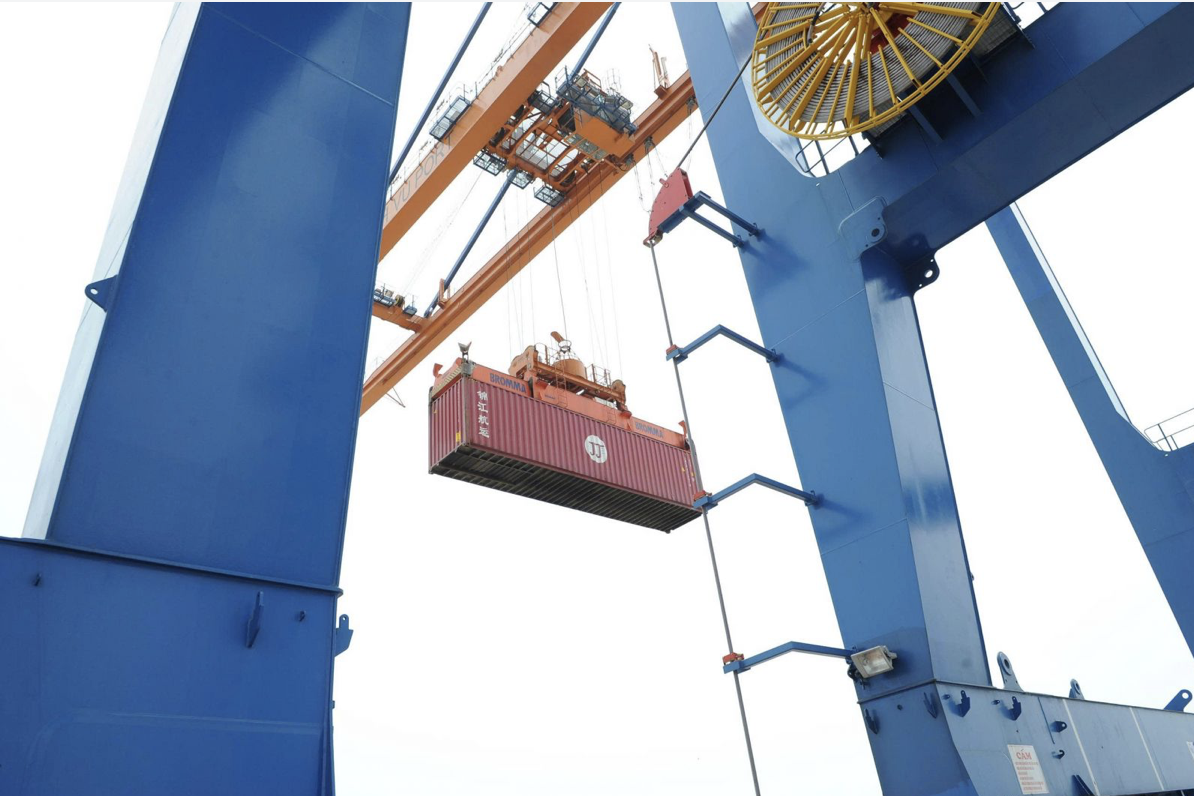
MoIT proposes measures to curb impact of Middle East conflict
19:05 | 23/03/2025 16:05 | 03/03/2026News and Events
Manufacturing posts highest growth since the start of the term
Speaking at the Government’s monthly online conference with localities for September 2025, chaired by Prime Minister Pham Minh Chinh on October 5, Minister of Industry and Trade Nguyen Hong Dien said that the global situation over the first nine months of the year had been complicated, posing numerous challenges. Domestically, Vietnam has maintained a strong focus on restructuring and consolidating administrative apparatuses, while consistently implementing important activities and events of the Party.
Despite natural disasters that have caused considerable impacts on production and livelihoods, aggregated reports show encouraging outcomes, even exceeding expectations. These efforts have prompted several international organisations to revise Vietnam’s growth forecast upward, while many other economies have seen their projections lowered.
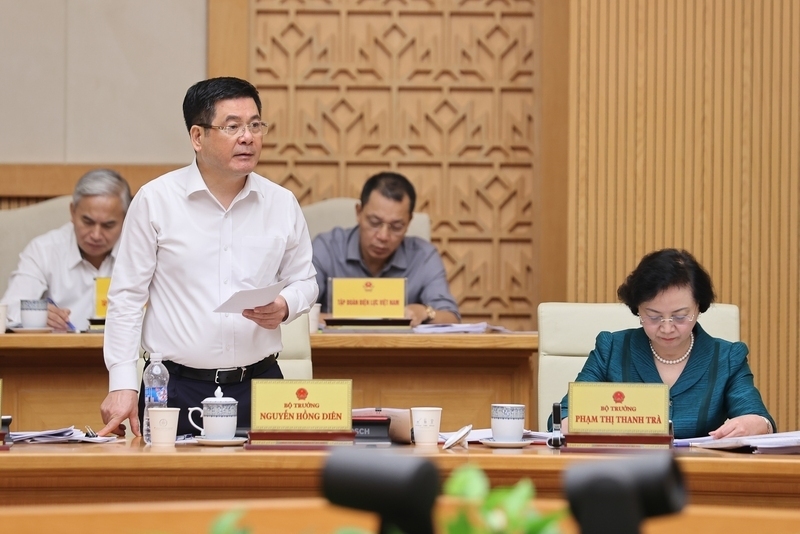
Minister of Industry and Trade Nguyen Hong Dien delivers remarks at the meeting. Photo: VGP/Nhat Bac.
In the industry and trade sector, September recorded a robust growth rate of 13.6% year-on-year. Overall, the first nine months saw an increase of 9.1%, nearly reaching the projected scenario. The manufacturing and processing industry expanded by 10.4%, compared with 9.9% in the same period last year, the highest increase since the start of the current term.
Domestically, total retail sales of goods and services in September grew by nearly 2% compared with the previous month, and by 11.7% year-on-year. For the nine-month period, the figure rose 9.5%, higher than 8.8% in the same period of 2024.
Supply of goods remained abundant, prices stable, and market operations smooth, ensuring sufficient provision for both production and daily life without shortages, even in disaster-affected areas. Electricity and petroleum supplies were also well secured. Meanwhile, e-commerce continued its strong momentum, expanding by around 22 - 23%.
Foreign trade continued to be a bright spot for the economy. Vietnam’s total export-import turnover in September reached USD 82.5 billion, and USD 680.66 billion for the first nine months, up 17.3% year-on-year, far exceeding the original growth target of 12%.
“If there are no major global shocks, this year’s total trade value is expected to hit a record high of over USD 900 billion, with an estimated trade surplus of more than USD 20 billion,” Minister Nguyen Hong Dien said.
Five key solutions and three recommendations for the government and localities
However, the final quarter of the year remains uncertain. Global tensions, particularly conflicts that may disrupt supply chains and production, persist. Inflationary pressures are rising, while technical barriers from importing partners are tightening, posing additional challenges to exports. Natural disasters also remain a considerable risk.
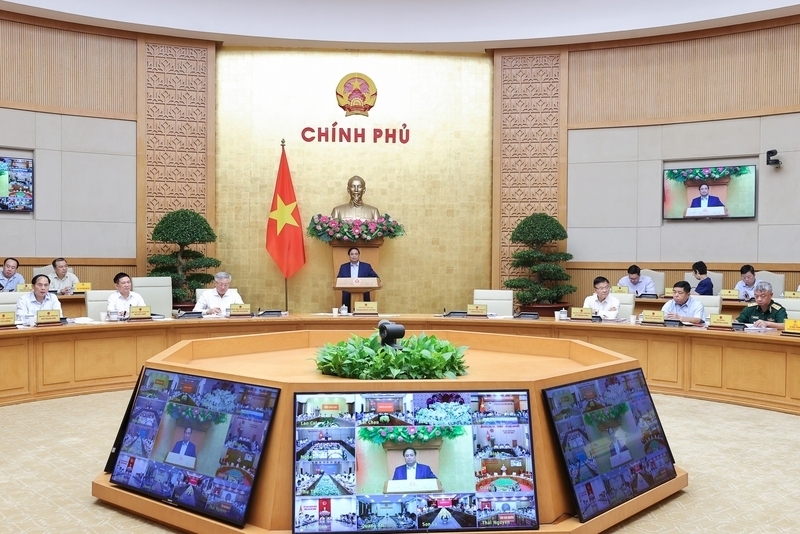
Prime Minister Pham Minh Chinh chairs the Government’s online meeting with local authorities for September 2025 to discuss key national issues. Photo: VGP/Nhat Bac.
To meet the year’s targets, Minister Nguyen Hong Dien proposed a set of solutions to stabilise production, ensure supply, and promote trade in the remaining months.
First, continue implementing urgent measures to address post-storm difficulties, support business recovery, and stabilise people’s livelihoods, especially following Storms No.10 and No.11, in line with the Government’s August resolution. The minister recommended forming inter-ministerial task forces led by members of the Government to assist local authorities in removing bottlenecks and achieving assigned targets.
Second, accelerate institutional reforms to unlock resources for economic growth in both 2025 and 2026 by expediting amendments to the “one law amending multiple laws” package, promptly institutionalising key Politburo resolutions, and issuing special mechanisms through Government resolutions to resolve sectoral obstacles.
Third, strengthen local governance capacity at both provincial and grassroots levels to enhance effectiveness and accountability in implementation, particularly amid ongoing decentralisation and delegation of authority.
According to Minister Dien, “The main driving force must come from local governments.” He noted that all provinces and cities had completed Party congresses with clear orientations, goals, and solutions, alongside stable personnel and administrative structures, providing a solid foundation for accelerated development and the achievement of socio-economic targets.
Fourth, speed up public investment disbursement and major project implementation nationwide to mobilise resources, stimulate domestic consumption, and promote science and technology cooperation with partners. Projects launched early in the year and key national infrastructure works under Government direction should receive particular attention to resolve existing obstacles and bring results into the economy as soon as possible.
Fifth, the Government, ministries, and localities should continue supporting enterprises and associations in exploring domestic and foreign markets through trade fairs and events, such as the 2025 Autumn Fair, under the Prime Minister’s direction. They should also facilitate participation in regional exhibitions, particularly in ASEAN, China, and the Republic of Korea, and effectively leverage free trade agreements (FTAs) that Vietnam has signed.
“Negotiations on FTAs with the Gulf Cooperation Council (GCC) and the Southern Common Market (MERCOSUR) will officially start this month. In October, an MoIT delegation will also head to Pakistan to negotiate an FTA, with determination to conclude talks within three months. Pakistan, with a population of 240 million, represents a large and highly suitable market for Vietnamese goods,” the Minister added.
In addition, the Minister presented three key recommendations for the Government and local authorities:
First, promptly announce local government staffing frameworks at both provincial and commune levels, and approve recruitment and organisational arrangements to ensure effective operations of local administrative units.
Second, resolve existing technological bottlenecks, especially by accelerating digital infrastructure development for a synchronised e-Government system. The Ministry of Science and Technology confirmed that technical feasibility is not an issue, yet effective integration still requires strong inter-ministerial coordination, as current data connectivity between ministries and the national system remains limited.
Third, localities should promptly adjust post-merger provincial master plans to align with national sectoral planning, creating favourable conditions for investment attraction and implementation. They must also accelerate investor selection for national-level projects in key sectors such as energy, mining, industry, and services.
Responding to Quang Ninh province’s proposal on electricity generation and supply, Minister Nguyen Hong Dien affirmed that the issue was “completely legitimate.” Unlike other resources, electricity cannot be stored, he said: “Although water sources this year are sufficient, they have yet to be fully utilised. Coal resources remain available, so energy mobilisation needs to be managed efficiently and promptly.”
Regarding Quang Ngai province’s proposal to establish a National Refining, Petrochemical and Energy Centre in the Dung Quat Economic Zone, Minister Nguyen Hong Dien said the Prime Minister had already instructed the Ministry of Industry and Trade to complete the master plan together with a set of special mechanisms and policies. However, the Prime Minister requested additional consultations from three Ministries of Finance, National Defense, and Public Security, before making a final decision. The Ministry of Finance has already provided its feedback, while the remaining two are finalising their opinions prior to the MoIT’s submission of the final proposal to the Prime Minister.

19:05 | 23/03/2025 16:05 | 03/03/2026News and Events
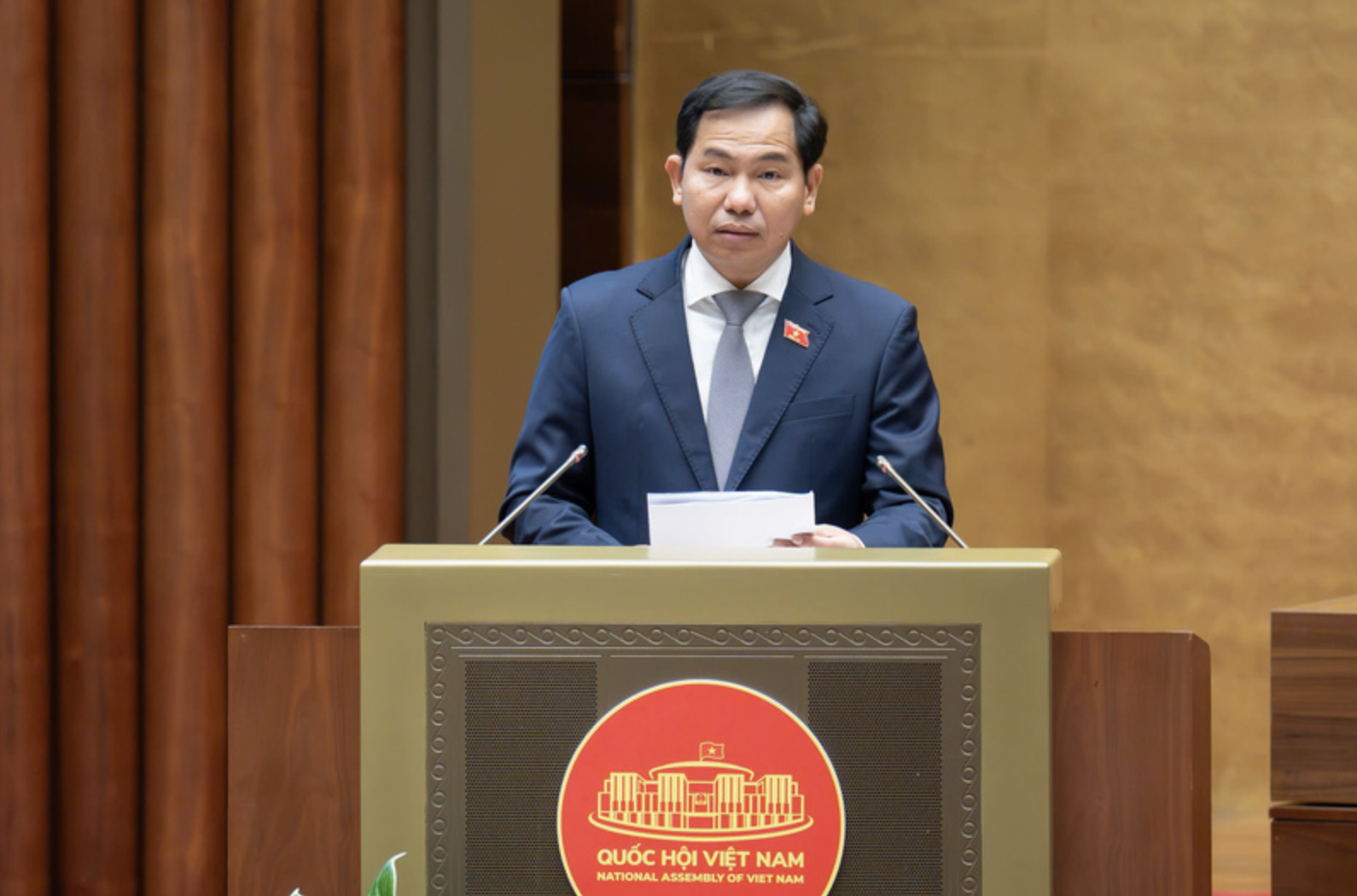
19:05 | 23/03/2025 16:04 | 03/03/2026News and Events

19:05 | 23/03/2025 15:18 | 03/03/2026Tourism
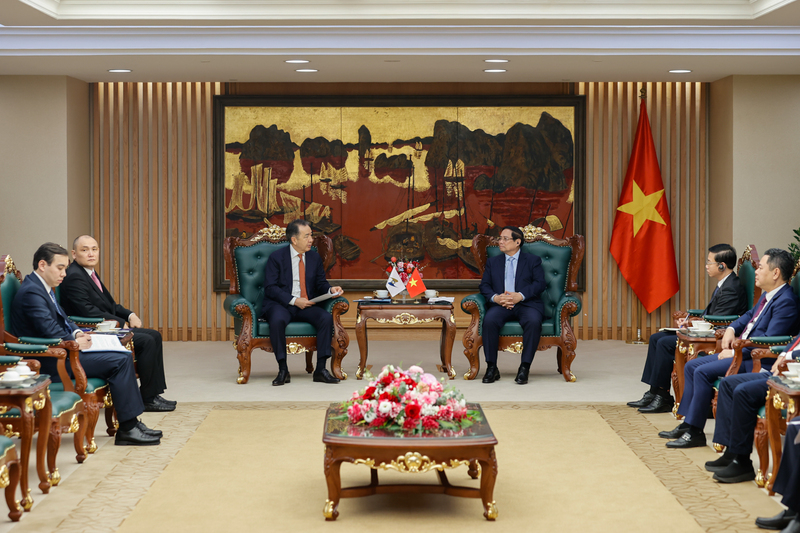
19:05 | 23/03/2025 14:38 | 03/03/2026News and Events
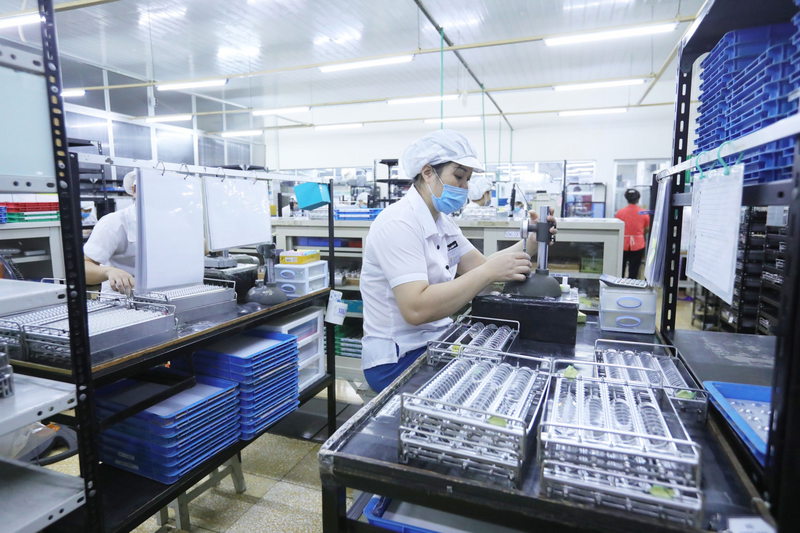
19:05 | 23/03/2025 11:24 | 03/03/2026Investment